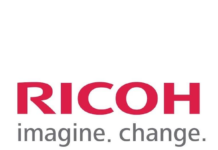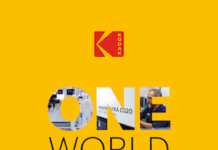Global consulting firm Deloitte has recognised Ricoh as one of the top global organisations ready for a green and inclusive economy. Deloitte researched the sustainability activities of 65 companies in 10 industries, for its first Zero Impact Growth Monitor 2012.
Six companies, only 10% of the total sample, are ready to take radical steps to transform their industries to a green economy, said Kevin Wilson-Smith, TQM manager at Ricoh SA. The balance of the companies surveyed, however, were vague about their strategic growth ambition according to the report. We are not.
Ricoh is identified as reaching the Ecosystem level of sustainable business, joined by Puma, Nike, Nestlé, Unilever and Natura.
This means Ricoh is recognised as one of the pioneering companies that have set measurable and ambitious mid to long term targets beyond 2020. It has also embedded its sub-policies in a holistic strategic vision – to minimise its negative environmental and societal impacts. A business in the Ecosystem level is also recognised for being in the process of establishing sustainable business ecosystems, and creating truly shared value, by also involving its suppliers and other stakeholders in its actions.
Ricoh has focused on minimising its natural and societal impact for many years. Ricohs founder first acknowledged the importance of corporate social responsibility (CSR) for the company more than 70 years ago. He then made a commitment to social sustainability in every aspect of Ricohs business activities, to innovate on behalf of its customers, and finally to pursue sustainable business practices.
Ricoh links its commitment to forward-thinking business strategies, and it promotes development that is profitable and sustainable at customer sites as well as at its own operations.
The business also offers a range of solutions in its Total Green Office Solutions. These have initially been rolled out in Europe.
One is The Ricoh Sustainability Optimisation Programme which is available as a part of the companys managed document services, that enables medium to large organisations to reduce environmental impact and total cost of ownership (TCO), govern the sustainable performance of their business documents, and neutralise any remaining, unavoidable carbon emissions. Another is the Carbon Balanced Printing service which is available specifically for commercial printers.
Ricoh has also set long term reduction targets to 2050, whereby the Group is committed to reducing the total lifecycle CO2 emissions from FY2000 level by 87,5%.
In addition Ricoh’s ethos to go beyond simply meeting regulatory requirements is highlighted by its unique Eco-boards in London, New York and Sydney.
The objectives of these billboards are to communicate a message that prompts environmental awareness among the public and to encourage everyone to take a step towards a sustainable society.
Each board relies on natural energy to illuminate. If there is insufficient solar power, the signs may not light up which is an eventuality Ricoh readily accepts, in order to deliver its message.





















